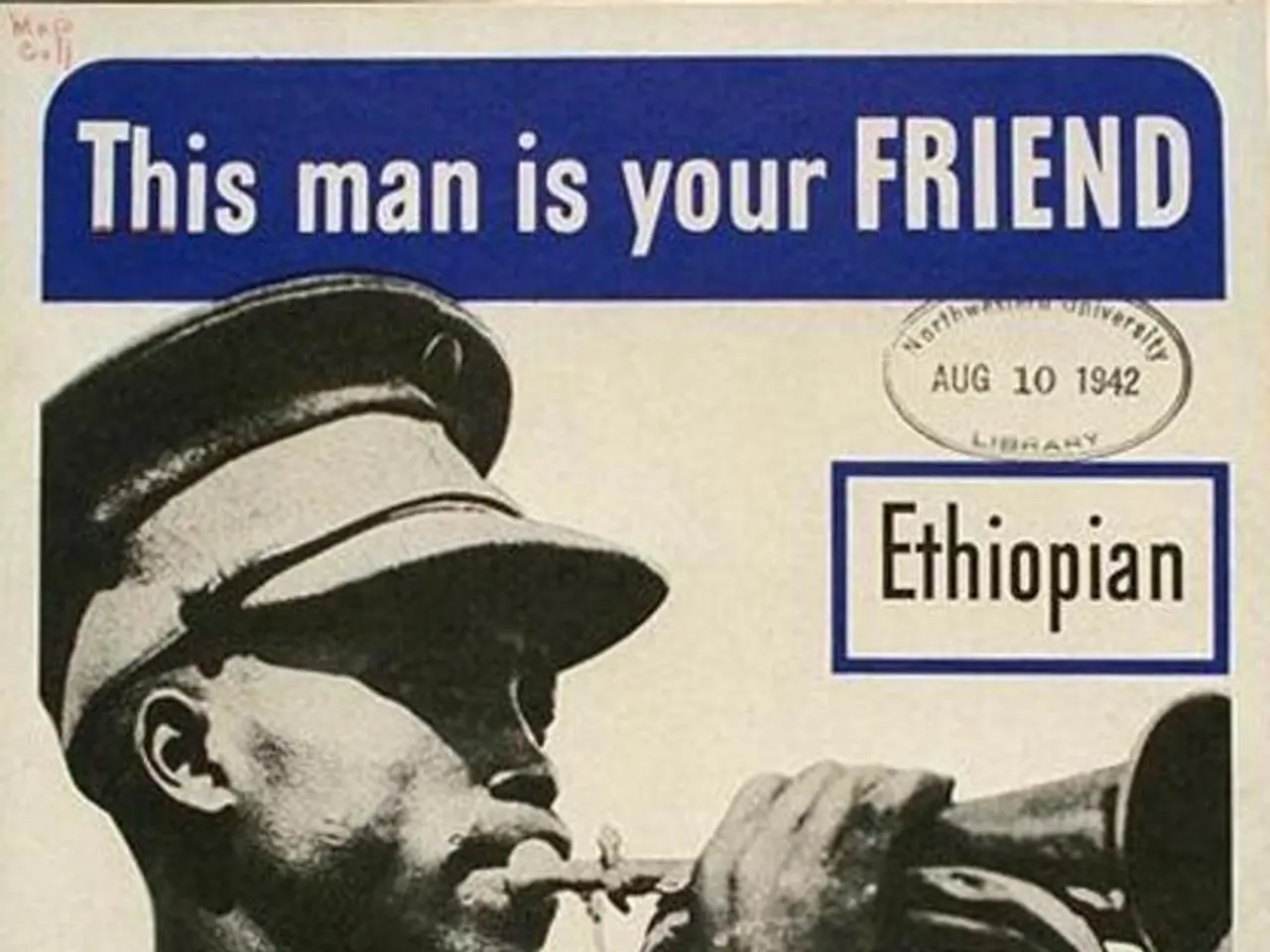"Foreign US deportees spark anger in small African country, residents labeling it not Trump's waste bin"
In a controversial move, the United States has recently deported five individuals, convicted of serious crimes including murder and child rape, to the African kingdom of Eswatini. This action is part of an expansion of a third-country deportation program initiated during the Trump administration, targeting individuals whose home countries have refused to accept them back after their convictions in the U.S.
The small, absolute monarchy of Eswatini, roughly the size of New Jersey, has become a focal point in this contentious issue. The five deportees are citizens of Vietnam, Jamaica, Cuba, Yemen, and Laos, and were described by a Department of Homeland Security spokesperson as "depraved monsters" who had been "terrorizing American communities." However, the terms of the agreement remain classified information, leading to widespread concern and criticism.
Eswatini, Africa’s only absolute monarchy, is governed by a king who rules by decree, and political parties are banned. Pro-democracy protests have been violently suppressed, and human rights groups have documented abusive prison conditions, notably at the Matsapha Correctional Complex, where political activists have been detained under harsh circumstances.
Critics argue that it is unacceptable for Eswatini to be used as a "dumping ground" for people considered unfit to live in the U.S. The opposition party PUDEMO in Eswatini has expressed concern about accepting foreign deportees from the U.S, stating it poses a risk to vulnerable communities. The Swaziland Solidarity Network, an exiled civil society group based in South Africa, has also criticized this potential use of Eswatini.
Analysts suggest that countries like Eswatini might accept U.S. deportees in exchange for more favorable diplomatic and economic relations, including discussions over trade tariffs, foreign aid, and visa restrictions. This implies a transactional nature to these deportation agreements, potentially leveraging immigration enforcement for geopolitical benefits.
The intake of US deportees has generated uproar in South Africa, with concerns that the U.S could be using this to destabilize the country. Some within the Trump administration could be using the deportation of prisoners to Eswatini as a direct national security threat, according to a South African government source.
Moreover, Eswatini is currently grappling with issues such as poverty, unemployment, high crime rates, congested prisons, and deteriorating human rights. Over half of its population lives on less than $4 a day, according to the World Bank. The country's sovereignty and dignity are at stake, according to the Multi Stakeholder Forum (MSF), a coalition of Eswatini's civil society groups, who have stated that the country's sovereignty and dignity should not be compromised for unclear deals or political expediency.
Ken Opalo, an associate professor at Georgetown University, has cautioned that African nations are being pushed by the Trump administration into doing egregious things such as accepting migrants from random countries or giving them mineral wealth in ambiguous deals that don't make much sense.
This development has sparked concern not only over human rights and legal due process but also over the broader implications of outsourcing U.S. immigration enforcement to countries with questionable records, raising ethical and geopolitical questions on both sides. Some African countries, such as Nigeria, have decried being pressured to take in foreign deportees. The future of Eswatini's relationship with the U.S, and the fate of the deportees, remains uncertain.
The controversial decision to deport criminals to Eswatini, Africa, has sparked debate in the world's political and general-news circles, as concerns over human rights, legal due process, and sovereignty grow. Critics argue that the use of Eswatini, a country grappling with its own issues of poverty, unemployment, and congested prisons, as a "dumping ground" for individuals considered unfit to live in the U.S poses a risk to vulnerable communities, potentially compromising its dignity and sovereignty. This raises ethical and geopolitical questions about outsourcing U.S immigration enforcement to countries with questionable records, such as Eswatini, where political parties are banned, pro-democracy protests have been suppressed, and abusive prison conditions have been documented.






